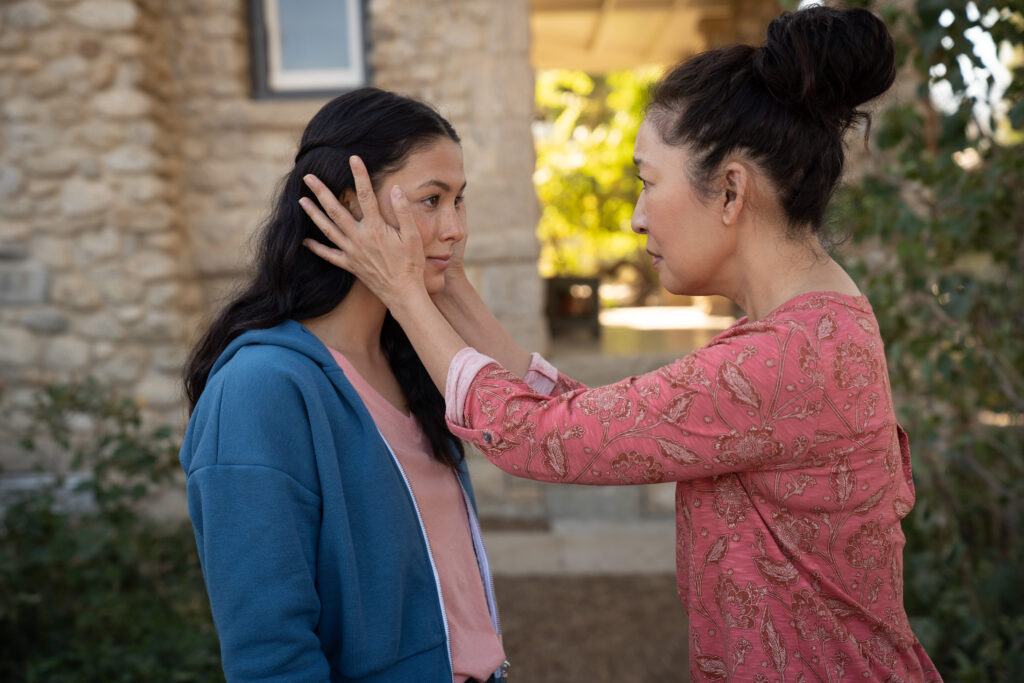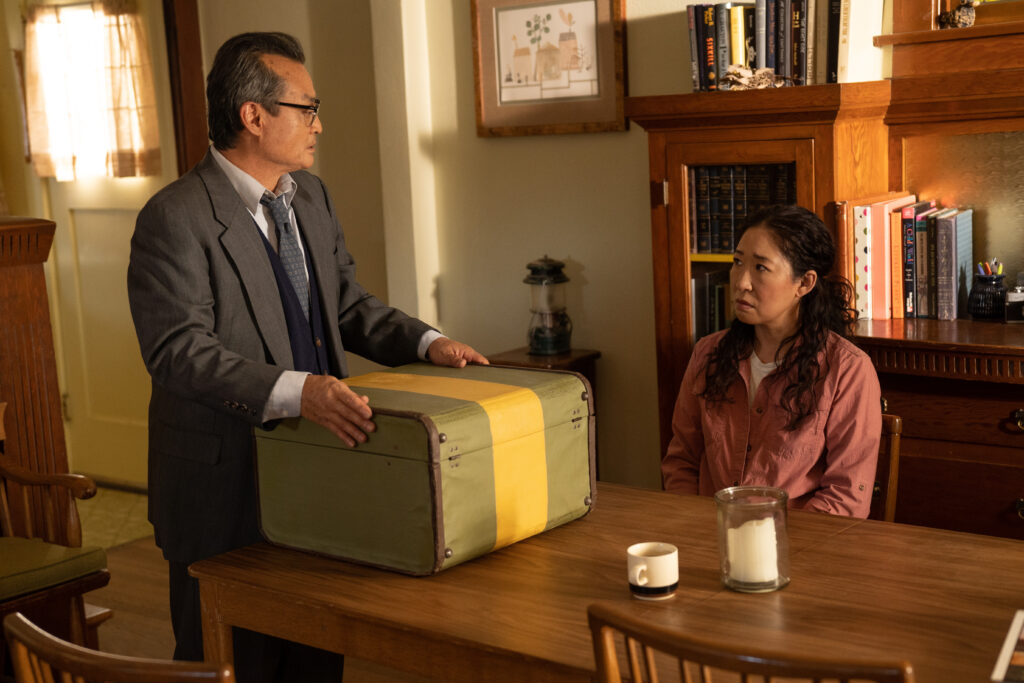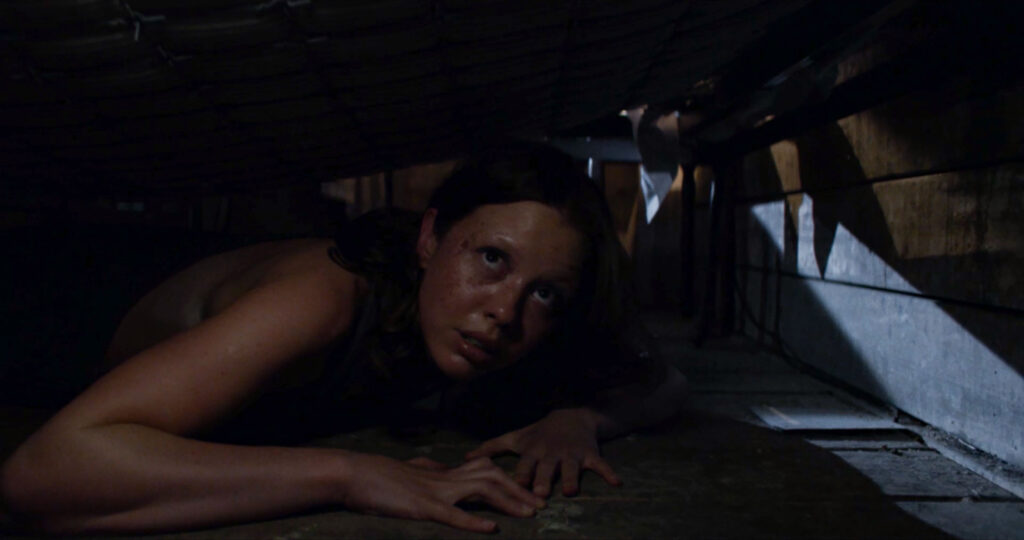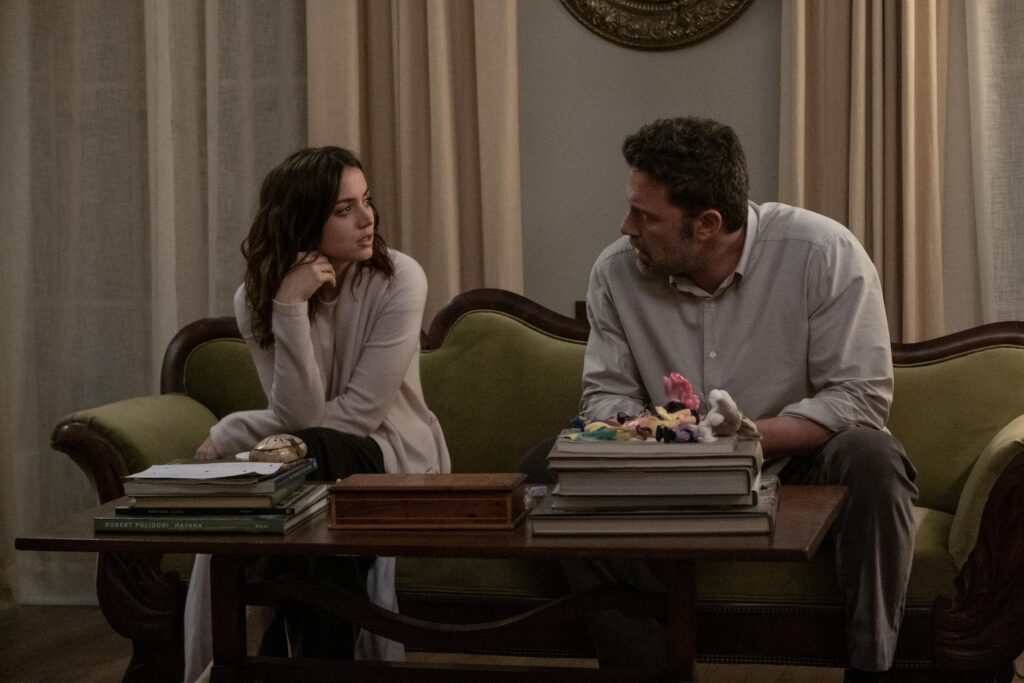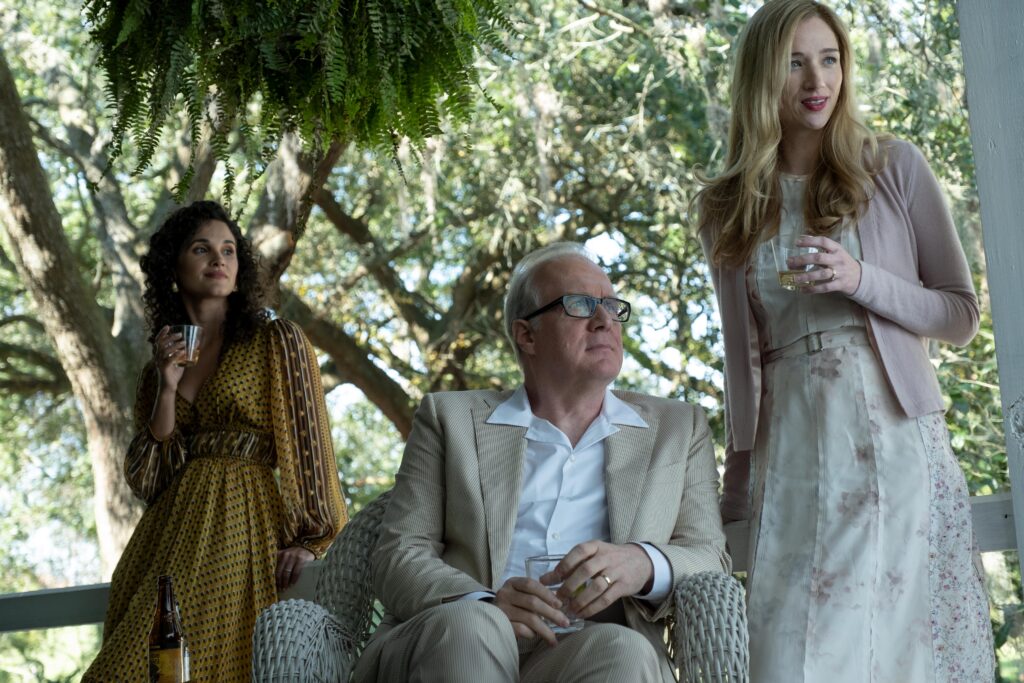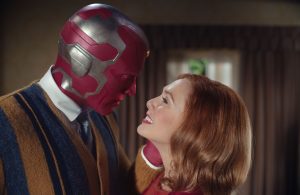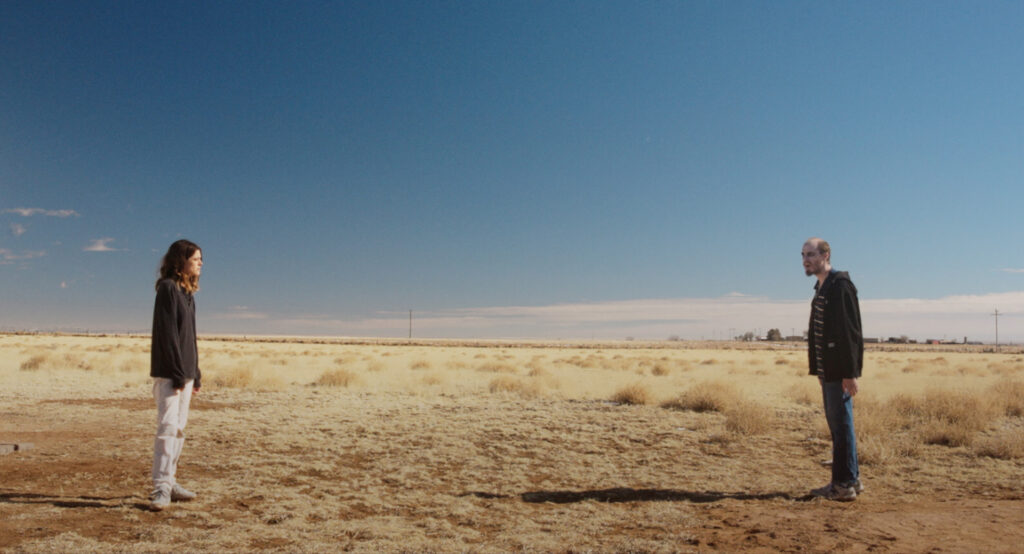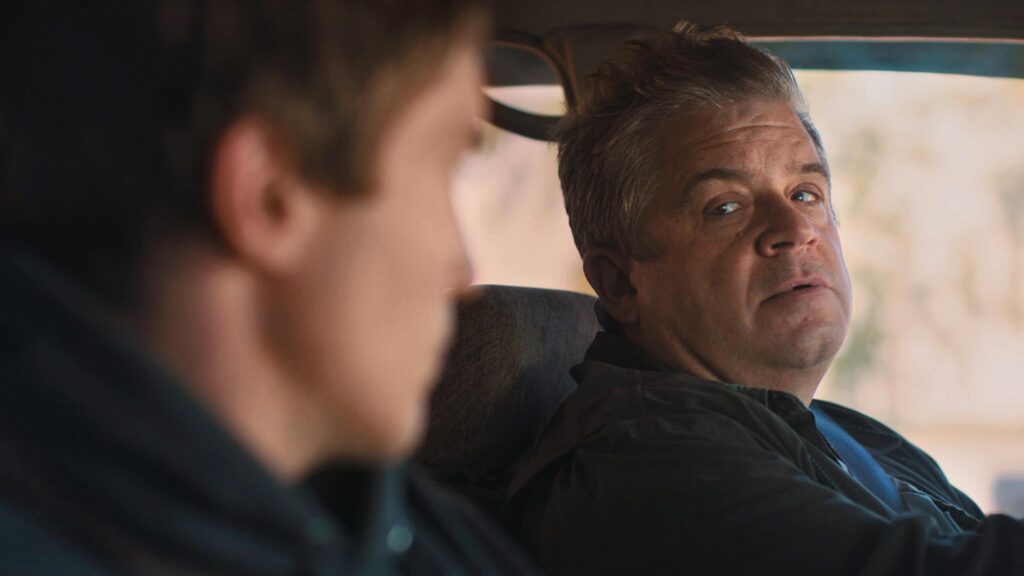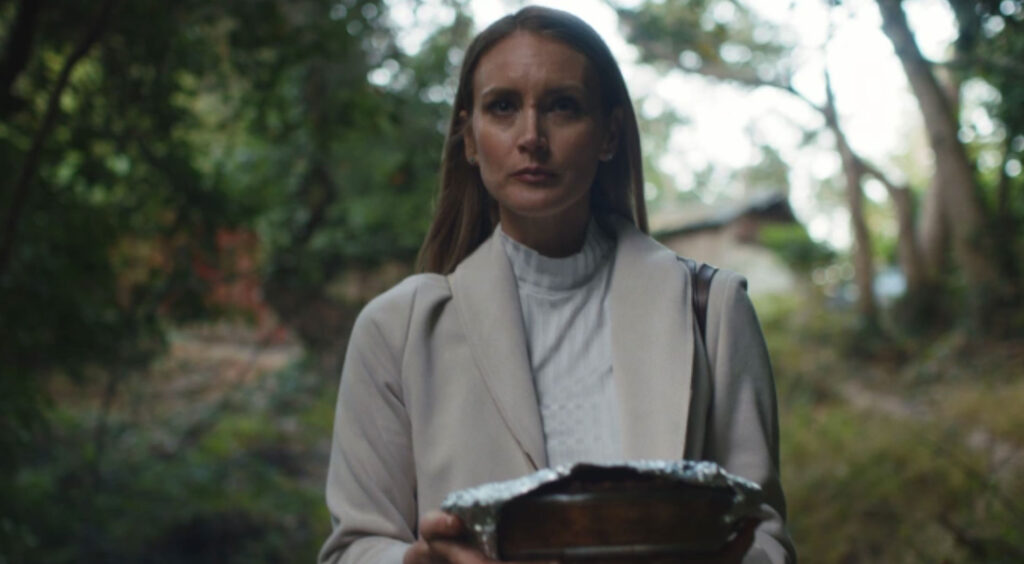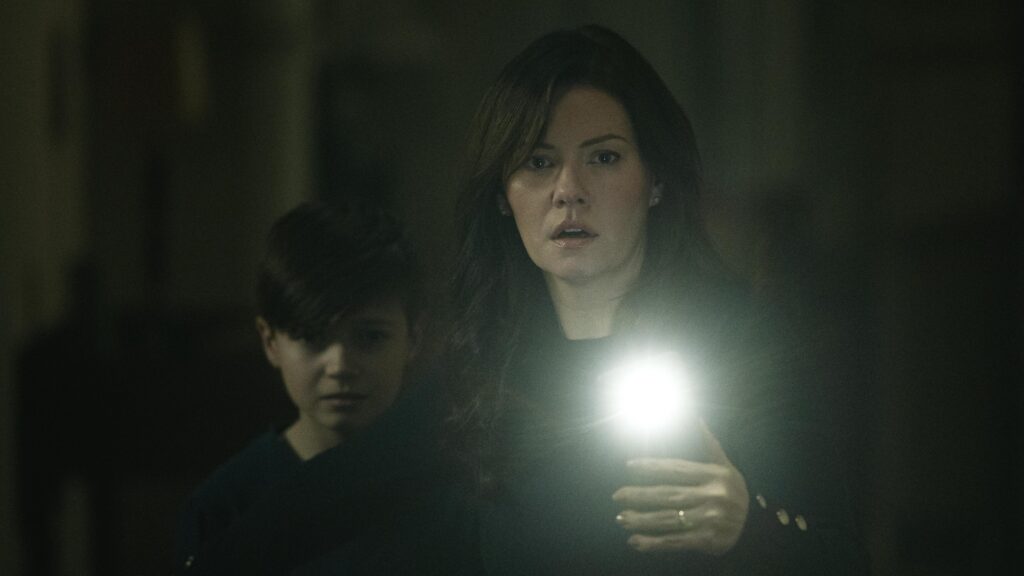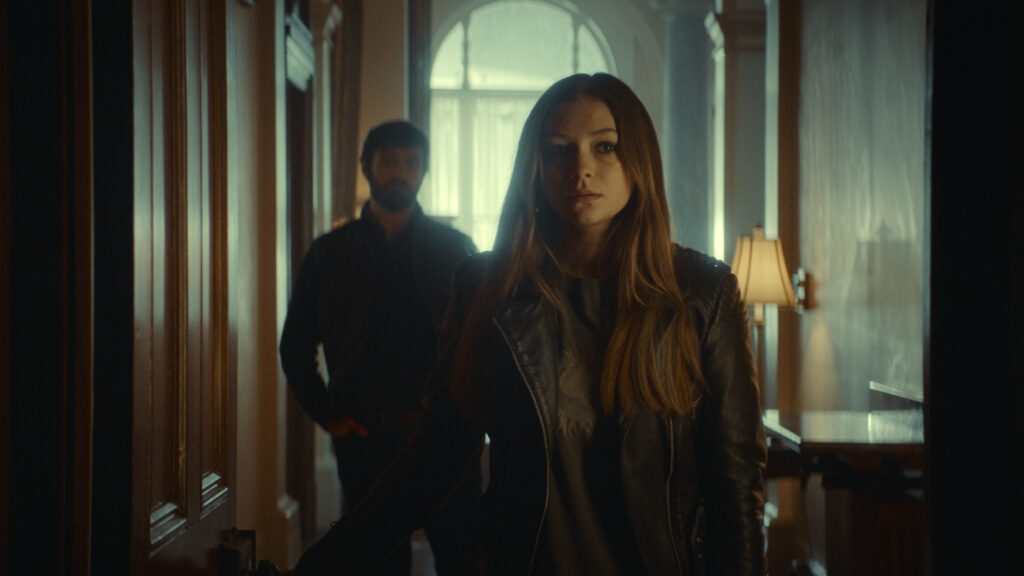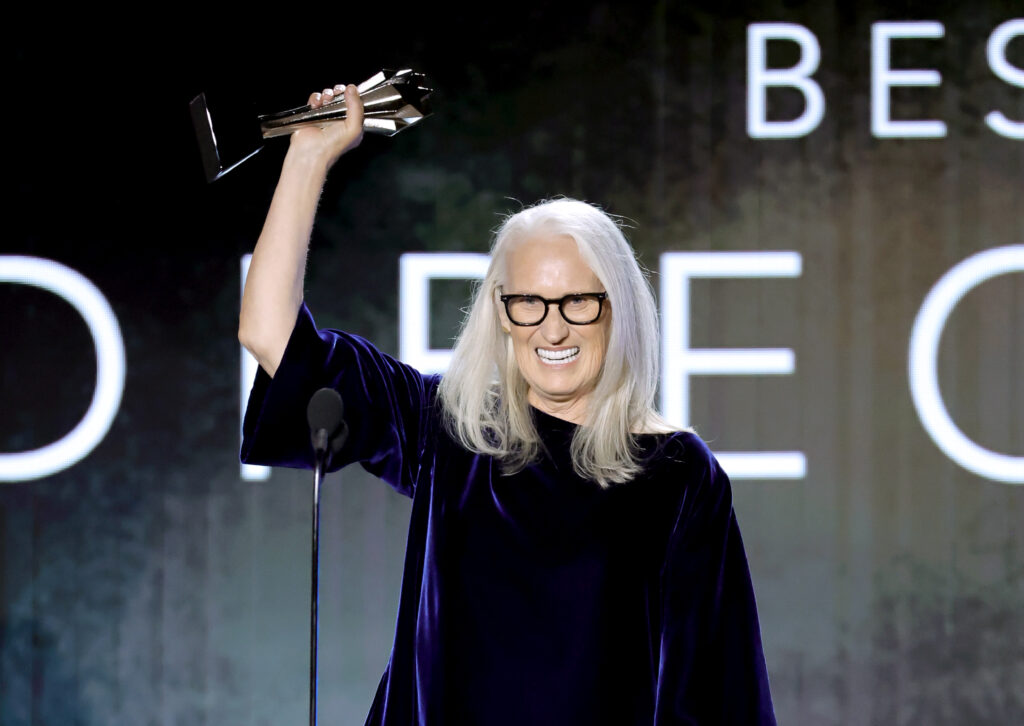March 18, 2022

Now that the Academy of Motion Pictures Arts and Sciences has announced the nominees for the 94th annual Academy Awards, people might be wondering where to see the nominated films before the winners are announced. The Oscar ceremony will take place at the Dolby Theatre in Los Angeles on March 27, 2022. ABC will have the live telecast of the show in the United States. Here is where the nominated films can be seen in theaters and on video before the Oscar ceremony. (This information applies to U.S. theaters only, and remains current until March 27, 2022.)
NOTE: “Home video” means available for rent or purchase in various formats.
BEST PICTURE
“Belfast”
Nominated for:
Best Picture
Best Director (Kenneth Branagh)
Best Supporting Actress (Judi Dench)
Best Supporting Actor (Ciarán Hinds)
Best Original Screenplay
Best Sound
Best Original Song (“Down to Joy”)
Where to watch:
Playing in select theaters.
Available on digital and VOD.
“Culture Mix review: “Belfast”
“CODA”
Nominated for:
Best Picture
Best Supporting Actor (Troy Kotsur)
Best Adapted Screenplay
Where to watch:
Streaming on Apple TV+.
“Don’t Look Up”
Nominated for:
Best Picture
Best Original Screenplay
Best Film Editing
Best Original Score
Where to watch:
Streaming on Netflix.
Culture Mix review: “Don’t Look Up”
“Drive My Car”
Nominated for:
Best Picture
Best Director (Ryusuke Hamaguchi)
Best Adapted Screenplay
Best International Feature Film
Where to watch:
Playing in select theaters.
Streaming on HBO Max.
Culture Mix review: “Drive My Car”
“Dune”
Nominated for:
Best Picture
Best Best Adapted Screenplay
Best Cinematography
Best Film Editing
Best Sound
Best Original Score
Best Production Design
Best Makeup and Hairstyling
Best Costume Design
Best Visual Effects
Where to watch:
Playing in select theaters.
Available on digital and VOD.
Streaming on HBO/HBO Max.
“King Richard”
Nominated for:
Best Picture
Best Actor (Will Smith)
Best Supporting Actress (Aunjanue Ellis)
Best Original Screenplay
Best Film Editing
Best Original Song (“Be Alive”)
Where to watch:
Playing in select theaters.
Available on digital and VOD.
Streaming on HBO/HBO Max.
Culture Mix review: “King Richard”
“Licorice Pizza”
Nominated for:
Best Picture
Best Director (Paul Thomas Anderson)
Best Original Screenplay
Where to watch:
Playing in select theaters.
Available on digital and VOD.
Culture Mix review: “Licorice Pizza”
“Nightmare Alley”
Nominated for:
Best Picture
Best Cinematography
Best Production Design
Best Costume Design
Where to watch:
Playing in select theaters.
Available on digital and VOD.
Streaming on Hulu and HBO/HBO Max.
Culture Mix review: “Nightmare Alley”
“The Power of the Dog”
Nominated for:
Best Picture
Best Director (Jane Campion)
Best Actor (Benedict Cumberbatch)
Best Supporting Actor (Kodi Smit-McPhee)
Best Supporting Actor (Jesse Plemons)
Best Supporting Actress (Kirsten Dunst)
Best Adapted Screenplay
Best Cinematography
Best Production Design
Best Film Editing
Best Sound
Best Original Score
Where to watch:
Streaming on Netflix.
Culture Mix review: “Power of the Dog”
“West Side Story”
Nominated for:
Best Picture
Best Director (Steven Spielberg)
Best Supporting Actress (Ariana DeBose)
Best Cinematography
Best Production Design
Best Film Editing
Best Costume Design
Best Sound
Where to watch:
Playing in select theaters.
Available on digital and VOD.
Streaming on Disney+ and HBO/HBO Max.
Culture Mix review: “West Side Story”
BEST DOCUMENTARY FEATURE
“Ascension”
Where to watch:
Streaming on Paramount+.
“Attica”
Where to watch:
Available on Showtime.
Streaming on You Tube (free).
“Flee”
Also nominated for:
Best International Feature Film
Best Animated Feature Film
Where to watch:
Available on digital and VOD.
Streaming on Hulu.
“Summer of Soul (…Or, When the Revolution Could Not Be Televised)”
Where to watch:
Available on digital and VOD.
Streaming on Disney+ and Hulu.
“Writing With Fire”
Where to watch:
Playing in select theaters.
Available on digital and VOD.
BEST ANIMATED FEATURE FILM
“Encanto”
Also nominated for:
Best Best Original Song (“Dos Oruguitas”)
Best Original Score
Where to watch:
Playing in select theaters.
Available on digital and VOD.
Streaming on Disney+.
“Flee”
Also nominated for:
Best Documentary Feature
Best International Feature Film
Where to watch:
Available on digital and VOD.
Streaming on Hulu.
“Luca”
Where to watch:
Streaming on Disney+.
“The Mitchells vs. The Machines”
Where to watch:
Available on digital and VOD.
Streaming on Netflix.
“Raya and the Last Dragon”
Where to watch:
Available on digital and VOD.
Streaming on Disney+.
BEST INTERNATIONAL FEATURE FILM
“Drive My Car”
Also nominated for:
Best Picture
Best Director (Ryusuke Hamaguchi)
Best Adapted Screenplay
Where to watch:
Playing in select theaters.
Streaming on HBO Max.
“Flee”
Also nominated for:
Best Documentary Feature
Best Animated Feature Film
Where to watch:
Available on digital and VOD.
Streaming on Hulu.
“The Hand of God”
Where to watch:
Streaming on Netflix.
“Lunana: A Yak in the Classroom”
Where to watch:
Available on digital and VOD.
Streaming on Kanopy. (Free with participating libraries.)
“The Worst Person in the World”
Where to watch:
Playing in select theaters.
OTHER OSCAR-NOMINATED FEATURE FILMS
“Being the Ricardos”
Nominated for:
Best Actor (Javier Bardem)
Best Actress (Nicole Kidman)
Best Supporting Actor (J.K. Simmons)
Where to watch:
Streaming on Prime Video.
“Coming 2 America”
Nominated for:
Best Makeup and Hairstyling
Where to watch:
Streaming on Prime Video.
“Cruella”
Nominated for:
Best Costume Design
Best Makeup and Hairstyling
Where to watch:
Available on digital and VOD.
Streaming on Disney+.
“Cyrano”
Nominated for:
Best Costume Design
Where to watch:
Playing in select theaters.
Available on digital and VOD.
“The Eyes of Tammy Faye”
Nominated for:
Best Actress (Jessica Chastain)
Best Makeup and Hairstyling
Where to watch:
Available on digital and VOD.
Streaming on Hulu and HBO/HBO Max.
“Four Good Days”
Nominated for:
Best Original Song (“Somehow You Do”)
Where to watch:
Available on digital and VOD.
Streaming on Kanopy (free with participating libraries) and Hulu.
“Free Guy”
Nominated for:
Best Visual Effects
Where to watch:
Available on digital and VOD.
Streaming on Disney+ and HBO/HBO Max.
“House of Gucci”
Nominated for:
Best Makeup and Hairstyling
Where to watch:
Playing in select theaters.
Available on digital and VOD.
“The Lost Daughter”
Nominated for:
Best Actress (Olivia Colman)
Best Supporting Actress (Jessie Buckley)
Best Adapted Screenplay
Where to watch:
Streaming on Netflix.
“No Time to Die”
Nominated for:
Best Sound
Best Original Song (“No Time to Die”)
Best Visual Effects
Where to watch:
Available on digital and VOD.
“Parallel Mothers”
Nominated for:
Best Actress (Penélope Cruz)
Best Original Score
Where to watch:
Playing in select theaters.
Available on digital and VOD.
“Shang-Chi and the Legend of the Ten Rings”
Nominated for:
Best Visual Effects
Where to watch:
Available on digital and VOD.
Streaming on Disney+.
“Spencer”
Nominated for:
Best Actress (Kristen Stewart)
Where to watch:
Available on digital and VOD.
Streaming on Hulu.
“Spider-Man: No Way Home”
Nominated for:
Best Visual Effects
Where to watch:
Playing in theaters.
“Tick, Tick…Boom!”
Nominated for:
Best Actor (Andrew Garfield)
Best Film Editing
Where to watch:
Streaming on Netflix.
“The Tragedy of Macbeth”
Nominated for:
Best Actor (Denzel Washington)
Best Cinematography
Where to watch:
Streaming on Apple TV+.
BEST SHORT FILMS (ANIMATED, LIVE-ACTION & DOCUMENTARY)
Every year, select theaters have special screenings of the Oscar-nominated short films. More information can be found here.
In addition, most cable and satellite TV companies have the Oscar-nominated short films available as a VOD package for subscribers.
These short films are currently available for streaming:
“Affairs of the Heart”
Nominated for:
Best Animated Short
Where to watch:
Streaming on YouTube (free).
“La Bestia”
Nominated for:
Best Animated Short
Where to watch:
Streaming on YouTube (free).
“Robin Robin”
Nominated for:
Best Animated Short
Where to watch:
Streaming on Netflix.
“The Windshield Wiper”
Nominated for:
Best Animated Short
Where to watch:
Streaming on YouTube (free).
“Audible”
Nominated for:
Best Documentary Short
Where to watch:
Streaming on Netflix.
“Lead Me Home”
Nominated for:
Best Documentary Short
Where to watch:
Streaming on Netflix.
“The Queen of Basketball”
Nominated for:
Best Documentary Short
Where to watch:
Streaming on The New York Times website (free) and YouTube (free).
“Three Songs for Benazir”
Nominated for:
Best Documentary Short
Where to watch:
Streaming on Netflix.
“When We Were Bullies”
Nominated for:
Best Documentary Short
Where to watch:
Streaming on HBO/HBO Max, as of March 30, 2022.
“Ala Kachuu – Take and Run”
Nominated for:
Best Live-Action Short
Where to watch:
Streaming on Vimeo (for a price).
“The Dress”
Nominated for:
Best Live-Action Short
Where to watch:
Streaming on HBO Max.
“The Long Goodbye”
Nominated for:
Best Live-Action Short
Where to watch:
Streaming on Vimeo (free) and YouTube (free).
“On My Mind”
Nominated for:
Best Live-Action Short
Where to watch:
Streaming on YouTube (free).
“Please Hold”
Nominated for:
Best Live-Action Short
Where to watch:
Streaming on HBO Max.

